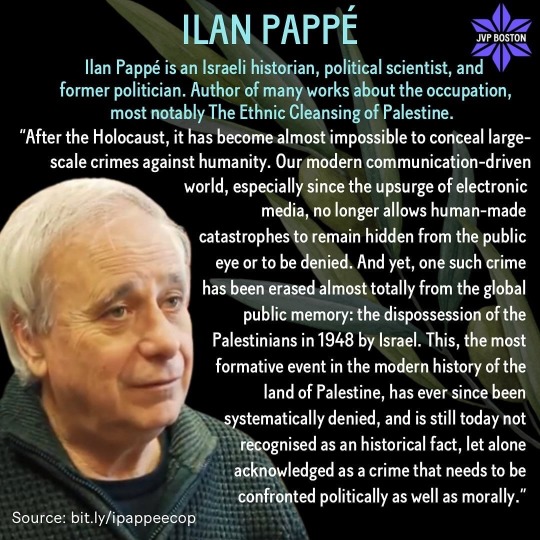#Naomi Klein
Explore tagged Tumblr posts
Text
Speedrunning Naomi Klein's The Shock Doctrine is becoming like binging the Twilight Zone to me. Every chapter is a new episode with new characters getting forced into a torment nexus by new and equally terrible villains and then Klein will come out at the end of an hour of Boris Yeltsin's bogus adventure and go "did you see that shit? it's fucked up right."
#me at the end of each chapter: wow everything is so much worse than i thought it was! wonder if next chapter will be different :)#the shock doctrine#naomi klein#reading#my reading#books#nonfiction
4 notes
·
View notes
Text
MLMs are the mirror-world version of community organizing

If you'd like an essay-formatted version of this post to read or share, here's a link to it on pluralistic.net, my surveillance-free, ad-free, tracker-free blog:
https://pluralistic.net/2025/02/05/power-of-positive-thinking/#the-socialism-of-fools

In her unmissable 2023 book Doppelganger, Naomi Klein paints a picture of a "mirror world" of right wing and conspiratorial beliefs that are warped, false reflections of real crises:
https://pluralistic.net/2023/09/05/not-that-naomi/#if-the-naomi-be-klein-youre-doing-just-fine
For example, Qanon's obsession with "child trafficking" is a mirror-world version of the real crises of child poverty, child labor, border family separations and kids in cages. Anti-vax is the mirror-world version of the true story of the Sacklers and their fellow opioid barons making billions on Oxy and fent, with the collusion of corrupt FDA officials and a pliant bankruptcy court system. Xenophobic panic about "immigrants stealing jobs" is the mirror world version of the well-documented fact that big business shipped jobs to low-waged territories abroad, weakening US labor and smashing US unions. Cryptocurrency talk about "decentralization" is the mirror-world version of the decay of every industry (including tech) into a monopoly or a cartel.
Klein is at pains to point out that other political thinkers have described this phenomenon. Back in the 19th century, leftists called antisemitism "the socialism of fools." Socialism – the idea that working people are preyed upon by capital – is reflected in the warped mirror as "working people are preyed upon by international Jewish bankers."
The mirror world is a critical concept, because it shows that far right and conspiratorial beliefs are often uneasy neighbors with real, serious political movements. The swivel-eyed loons have a point, in other words:
https://locusmag.com/2023/05/commentary-cory-doctorow-the-swivel-eyed-loons-have-a-point/
Once you understand the mirror world, you start to realize that many right wing conspiracists could have been directed into productive movements, if only they'd understood that their problems were with systems, not sinister individuals (this is why Trump has ordered a purge of any federally funded research that contains the word "systemic"):
https://mamot.fr/@[email protected]/113943287435897828
This also explains why the "tropes" of right wing conspiratorialism sometimes echo left wing, radical thought. I once had a (genuinely unhinged) dialog with a self-described German "progressive" who told me that criticizing the finance industry as parasitic on the real economy was "structurally antisemitic." Nonsense like this is why Klein's "mirror world" is so important: unless you understand the mirror world, you can end up believing that "progressive" just means "defending anything the right hates."
Historian Erik Baker is the author of a new book, Make Your Own Job: How the Entrepreneurial Work Ethic Exhausted America, which has some very interesting things to say about the mirror world:
https://www.hup.harvard.edu/books/9780674293601
In a recent edition of the always-excellent Know Your Enemy podcast, the hosts interviewed Baker about the book, and the conversation turned to the subject of pyramid schemes, the "multilevel marketing systems" that are woven into so many religious, right-wing movements:
https://www.dissentmagazine.org/blog/know-your-enemy-the-entrepreneurial-ethic/
MLMs have it all: prosperity gospel ("God rewards virtue with wealth"), atomization ("you are an entrepreneur and everyone in your life is your potential customer"), and rabid anti-Communism ("solidarity is a trick to make you poorer").
The rise of the far right can't be separated from the history of MLMs. The modern MLM starts with Amway, a cultlike national scam that was founded by Jay Van Andel and Richard DeVos (father-in-law of Betsy DeVos).
Rank-and-file members of the Amway cult lived in dire poverty, convinced that their financial predicament was their own fault for not faithfully following the "sure-fire" Amway method for building a business. Andrea Pitzer's gripping memoir of growing up in an Amway household offers a glimpse of the human cost of the cult:
https://www.theatlantic.com/ideas/archive/2025/01/amway-america/681479/?gift=j9r7avb6p-KY8zdjhsiSZxYkntna5M_rYEv4707Zqqs
Amway – and MLMs like it – don't just bleed out their members by convincing them to buy mountains of useless crap they're supposed to sell to their families, while enriching the people at the top of the pyramid who sell it to them. The "toxic positivity" of multi-level marketing cults forces members deep into debt to pay for seminars and retreats where they are supposed to learn how to repair the personal defects that keep them from being "successful entrepreneurs." The topline of the cult isn't just getting rich selling stuff – they're making bank by selling false hope, literally, in Hilton ballrooms and convention centers across the country, where hearing an MLM scammer berate you for being a "bad entrepreneur" costs thousands of dollars.
Amway destroyed so many lives that Richard Nixon's FTC decided to investigate it. The investigation wasn't going well for Amway, which was facing an existential crisis that they were rescued from by Nixon's resignation. You see, Nixon's successor, Gerald Ford, was the former Congressman of Amway co-founder Jay Van Andel, who was also the head of the US Chamber of Commerce, the most powerful business lobbyist in America.
At Ford's direction, the FTC exonerated Amway of all wrongdoing. But it's even worse than that: Ford's FTC actually crafted a rule that differentiated legal pyramid schemes from illegal ones, based on Amway's destructive business practices. Under this new rule, any pyramid scheme that had the same structure as Amway was presumptively legal. Every MLM operating in America today is built on the Amway model, taking advantage of the FTC's Amway rule to operate in the open, without fear of legal repercussions.
MLMs prey on the poor and desperate: women, people of color, people in dying small towns and decaying rustbelt cities. It's not just that these people are desperate – it's that they only survive through networks of mutual aid. Poor women rely on other poor women to help with child care, marginalized people rely on one another for help with home maintenance, small loans, a place to crash after an eviction, or a place to park the RV you're living out of.
In other words, people who lack monetary capital must rely on social capital for survival. That's why MLMs target these people: an MLM is a system for destructively transforming social capital into monetary capital. MLMs exhort their members to mine their social relationships for "leads" and "customers" and to use the language of social solidarity ("women helping women") to wheedle, guilt, and arm-twist people from your mutual aid network into buying things they don't need and can't afford.
But it's worse, because what MLMs really sell is MLMs. The real purpose of an MLM sales call is to convince the "customer" to become an MLM salesperson, who owes you a share of every sale they make and is incentivized to buy stock they don't need (from you) in order to make quotas. And of course, their real job is to sign up other salespeople to work under them, and so on.
An MLM isn't just a pathogen, in other words – it's a contagion. When someone in your social support network gets the MLM disease, they don't just burn all their social ties with you and the people you rely on – they convince more people in your social group to do the same.
Which brings me back to the mirror world, and Erik Baker's conversation with the Know Your Enemy podcast. Baker starts to talk about who gets big into Amway: "people who already effectively lead by the force of their charisma and personality many other people in their lives. Right? Because you're able to sell to those people, and you're able to recruit those people. What are we talking about? Well, they're effectively recruiting organizers, people who have a natural capacity for organizing and then sending them out in the world to organize on behalf of Christian capitalism."
Listening to this, I was thunderstruck: MLM recruiters are the mirror world version of union organizers. In her memoir of growing up in Amway, Andrea Pitzer talks about how her mom would approach strangers and try to lead them through a kind of structured discussion:
Everywhere we went—the mall, state parks, grocery stores—she’d ask people whether they could use a little more money each month. “I’d love to set up a time to talk to you about an exciting business opportunity.” The words should have seemed suspect. Yet people almost always gave her their number. Her confidence and professionalism were reassuring, and her enthusiasm was electric, even, at first, to me. “What would you do with $1 million?” she’d ask, spinning me around the kitchen.
This kind of person, having this kind of dialog, is exactly how union organizers work. In A Collective Bargain, Jane McAlevey's classic book on labor organizing, she describes how she would seek out the charismatic, outgoing workers in a job-site, the natural leaders, and recruit them to help bring the other workers onboard:
https://pluralistic.net/2023/04/23/a-collective-bargain/
Organizer training focuses on how to have a "structured organizing conversation," which McAlevey described in a 2019 Jacobin article:
“If you had a magic wand and could change three things about life in America [or her town or city or school], what would you change?” The rest of your conversation needs to be anchored to her answers to that question.
https://jacobin.com/2019/11/thanksgiving-organizing-activism-friends-family-conversation-presidential-election
The MLM conversation and the union conversation have eerily similar structures, but the former is designed to commodify and destroy solidarity, and the latter is designed to reinforce and mobilize solidarity. Seen in this light, an MLM is a mirror world union, one that converts solidarity into misery and powerlessness instead of joy and strength.
The MLM movement doesn't just make men like Rich De Vos and Jay Van Andel into billionaires. MLM bosses are heavy funders of the right, a blank check for the Heritage Foundation. Trump is the MLM president, a grifter who grew up on the gospel of Norman Vincent Peale – a key figure in MLM cult dynamics – who tells his followers that wealth is a sign of virtue. Trump boasts about all the people he's ripped off, boasting about how getting away with cheating "makes me smart":
https://pluralistic.net/2024/12/04/its-not-a-lie/#its-a-premature-truth
The corollary is that being cheated means you're stupid. Caveat emptor, the motto of the cryptocurrency industry ("not your wallet, not your coins") that spent hundreds of millions to get Trump elected.
Tech has its own mirror world. The people who used tech to find fellow weirdos and make delightful and wonderful things are mirrored by the people who used tech to find fellow weirdos and call for fascism, ethnic cleansing, and concentration camps.
In Picks and Shovels, my next novel (Feb 17), I introduce readers to a fictitious 1980s religious computer sales cult called Fidelity Computing, run by an orthodox rabbi, a Catholic priest and a Mormon rabbi:
https://us.macmillan.com/books/9781250865908/picksandshovels
Fidelity is a faith scam, a pyramid scheme that is parasitic upon the bonds of faith and fellowship. Martin Hench, the hero of the story – a hard-fighting high tech forensic accountant – goes to work for a competing business, Computing Freedom, run by three Fidelity ex-employees who have left their faiths and their employers to pursue a vision of computers that is about liberation, rather than control.
The women of Computing Freedom – a queer orthodox woman who's been kicked out of her family, a Mormon woman who's renounced the LDS over its opposition to the Equal Rights Amendment, and a nun who's left her order to throw in with the Liberation Theology movement – are all charismatic, energetic, inspirational organizers.
Because of course they are – that's why they were so good at selling computers for the Reverend Sirs who sit at the top of Fidelity Computing's pyramid scheme.
Hearing Baker's interview and reading Pitzer's memoir last week made it all click together for me. Not just that MLMs destroy social bonds, but that within every person who gets sucked into an MLM, there's a community organizer who could be building the bonds that MLMs destroy.
#pluralistic#amway#mlm#picks and shovels#martin hench#devos#that makes me smart#rich devos#mirror world#doppelganger#naomi klein#crime fiction#technothrillers#books#cults
1K notes
·
View notes
Text










Another post for JVP Boston I made and am quite proud of! I may do a sequel if requested because there are so many more great people we could cover:
Judith Butler
Jamie Margolin
Rabbi Alissa Klein
Miriam Margolyes
Avi Shlaim
If you have any more suggestions let me know!
#free palestine#palestine#human rights#jewish antizionism#antizionist jews#normal finkelstein#israelism#Israel#Simone Zimmerman#noam chomsky#gideon levy#sasha velour#wallace shawn#naomi klein#leslie feinberg#ilan pappe#antizionism#Jewish#judaism#jumblr#jewish voice for peace#free gaza#Gaza#gaza genocide#never again#never again for anyone
2K notes
·
View notes
Text
« This is what happens when we allow so many of our previously private actions to be enclosed by corporate tech platforms whose founders said they were about connecting us but were always about extracting from us. The process of enclosure, of carrying out our activities within these private platforms, changes us, including how we relate to one another and the underlying purpose of those relations. This goes back to early forms of enclosure, beginning in the Middle Ages. When common lands in England were transformed into privately held commodities surrounded by hedges and fences, the land became something else: its role was no longer to benefit the community—with shared access to communal grazing, food, and firewood—but to increase crop yields and therefore profits for individual landowners. Once physically and legally enclosed, the soil began to be treated as a machine, whose role was to be as productive as possible.
So, too, with our online activities, where our relationships and conversations are our modern-day yields, designed to harvest ever more data. As with corn and soy grown in great monocrops, quality and individuality are sacrificed in favor of standardization and homogenization, even when homogenization takes the form of individuals all competing to stand out as quirky and utterly unique. This is why The Matrix and its sequels have proved such enduring metaphorical landscapes for understanding the digital age: it’s not just the red pills and blue pills. In The Matrix, humans, living their lives in synthetic pods, are mere food for machines. Many of us suspect that we, too, have become machine food.
And, in a way, we have. As Richard Seymour writes in his blistering 2019 dissection of social media, The Twittering Machine, we think we are interacting—writing and singing and dancing and talking— with one another, “our friends, professional colleagues, celebrities, politicians, royals, terrorists, porn actors—anyone we like. We are not interacting with them, however, but with the machine. We write to it, and it passes on the message for us, after keeping a record of the data.” »
— Naomi Klein, Doppelganger
71 notes
·
View notes
Text

#climate change#environmentalism#political cartoon#naomi klein#auspol#comic#coal mining#australia#political comic
112 notes
·
View notes
Text








[This post is a series of images from an infographic by the Slow Factory Foundation originally posted May 2021. The first image is a photo with text over it. The photo shows a massive fireball in the middle of a group of buildings, with a massive black cloud rising from the flames that is bigger than the buildings themselves. The building just behind the fireball is low, rectangular, and lit up bright orange. Behind that building, there is a city lit up at night. Hundreds of buildings stretching into the distance, a thousand glimmering lights.]
What is happening in Palestine is not complicated; it's settler colonialism & ethnic cleansing.
Debunking Misinformation around Palestine.
Myth ❌ Palestine and Israel are in "conflict."
Fact ✅ What is happening in Palestine is settler colonialism, military occupation, land theft and ethnic cleansing. A conflict means there is equal footing, which is not the case. There is an active oppressor (Israel) and an oppressed (Palestine). A colonizer (Israel) and a colonized (Palestine). This is not a conflict.
[Three images of headlines with the word 'conflict' crossed out in red ink.]
Note: According to the Congressional Research Service,
Israeli military occupation has been supported by US aid with $3.8bn a year paid for by U.S. tax dollars since 2016 for the next 10 years.
It's also supported by other colonial countries including Canada, Australia, France and Belgium.
Myth ❌ Before Israel came to Palestine, it was "just a desert" and Israel made the desert green.
Fact ✅ Before the occupation of Israel, Palestine had green, rich and lush land. In fact, Palestine respected the biodiversity of their Indigenous land: Palestinians were producing 92% of Palestine's grain, 99% of its olives and 95% of its melons to name a few.
Since Israel's occupation, biodiversity has decreased. Israel removed Indigenous plants from the land to plant European Invasive species. This phenomenon is called green colonialism, which has been discussed in depth by many, including Naomi Klein in "Let Them Drown."
Myth ❌ Sheikh Jarrah is the only neighborhood in Palestine that is in danger.
Fact ✅ Israel has been gradually stealing Palestinian land, destroying and ethnically cleansing entire Palestinian villages, violently displacing families and building illegal settlements on top them since the first Nakba ('catastrophe' in Arabic) in 1948, where almost 600 Palestinian villages were destroyed, Palestinian history erased and half the Palestinian population were expelled from their homes.
Myth (cont'd.) ❌ Sheikh Jarrah is the only neighborhood in Palestine that is in danger.
Fact ✅ Over the past few decades, the state of Israel has continued the settler colonial project, and Sheikh Jarrah is the latest and not the last neighborhood being violently threatened with dispossession, which Israel has no legal right to do.
[Images of a map showing the drastic decrease in Palestinian landmass from 1946 to 2019. In 1946, Palestine was 99% Palestinian land. In 1947, it decreased to 40%. In 1967, to 30%. And in 2019, less than 20% of Palestine is Palestinian land. The remaining areas are being encroached on by occupied Palestinian land, meaning occupied by Israelis. The rest is Israeli land.]
The mainstream media has been supporting these myths by spreading misinformation that conceal Israel's ongoing genocide and ethnic cleansing of Palestine by saying it's a two-sided conflict, framing Palestinian resistance as terrorism and normalizing the state of Israel.
To learn more about Palestine and the ongoing fight for liberation, follow Palestinian-led organizations, media and frontline activists. [@Instagram / Facebook]
@theimeu / Institute for Middle East Understanding ( IMEU )
@eye.on.palestine
@palestinianyouthmovement / Palestinian Youth Movement (PYM)- حركة الشباب الفلسطيني
@jewishvoiceforpeace / Jewish Voice for Peace
@visualizing_palestine / Visualizing Palestine
@wolpalestine [Censored by Meta]
@mohammedelkurd / Mohammed El-Kurd
@muna.elkurd15 / Muna Nabeel Elkurd
@nouraerakat / Noura Erakat
Sources & Suggested Reading
Freedom is a Constant Struggle by Angela Davis
Let Them Drown by Naomi Klein
Black Power and Palestine by Michael Fischbach
Orientalism by Edward Said
The Question of Palestine by Edward Said
Palestine by Joe Sacco
"Zionist Logic — Malcolm X on Zionism" in The Egyptian Gazette, Sept. 17, 1964
On Palestine by Noam Chomsky and Ilan Pappé
The Ethnic Cleansing of Palestine by Ilan Pappé
[End of images]
#the slow factory#palestine#gaza#angela davis#naomi klein#michael fischbach#edward said#joe sacco#malcolm x#noam chomsky#ilan pappé#Noura Erakat#Muna Nabeel Elkurd#Mohammed El-Kurd#Eye On Palestine#IMEU#Palestinian Youth Movement#Jewish Voice for peace#Visualizing Palestine
279 notes
·
View notes
Text

Us: The Complete Annotated Screenplay by Jordan Peele will be published on September 3 via Inventory Press, who previously released a similar book for Get Out.
The 208-page softcover book illustrates Peele's script with over 150 stills from the film, deleted scenes, in-depth annotations, and an introduction by Peele. Additional details can be found below, along with a preview of several pages.




A masterpiece of identity horror and a dark reflection on America’s past and present, this companion paperback to the critically-acclaimed film Us features Oscar-winning director Jordan Peele’s screenplay illustrated with over 150 stills from the motion picture; deleted scenes; an introduction by the filmmaker; and in-depth annotations. These include texts by hannah baer, Theaster Gates, Jamieson Webster, Jared Sexton, Mary Ping, Shana Redmond, and Leila Taylor, alongside excerpts from Naomi Klein, Coleson Whitehead, Maggie Nelson, Carol J. Clover, Michael Harrington, and Paul Laurence Dunbar, and a constellation of images, definitions, and inspirations that extend the themes of the film.
Pre-order Us: The Complete Annotated Screenplay by Jordan Peele.
#us#jordan peele#lupita nyong'o#winston duke#horror#book#gift#horror books#elisabeth moss#get out#us 2019#theaster gates#naomi klein#maggie nelson#paul laurence dunbar#hannah baer
65 notes
·
View notes
Text

21 notes
·
View notes
Text
It's a bit bleak, but its a banger.
+++
If we are to meet our critical moment in history, we need to reckon with the reality that we are not up against adversaries we have seen before. We are up against end times fascism.
Reflecting on his childhood under Mussolini, the novelist and philosopher Umberto Eco observed in a celebrated essay that fascism typically has an “Armageddon complex” – a fixation on vanquishing enemies in a grand final battle. But European fascism of the 1930s and 1940s also had a horizon: a vision for a future golden age after the bloodbath that, for its in-group, would be peaceful, pastoral and purified. Not today.
Alive to our era of genuine existential danger – from climate breakdown to nuclear war to sky-rocketing inequality and unregulated AI – but financially and ideologically committed to deepening those threats, contemporary far-right movements lack any credible vision for a hopeful future. The average voter is offered only remixes of a bygone past, alongside the sadistic pleasures of dominance over an ever-expanding assemblage of dehumanized others.
And so we have the Trump administration’s dedication to releasing its steady stream of real and AI-generated propaganda designed solely for these pornographic purposes. Footage of shackled immigrants being loaded on to deportation flights, set to the sounds of clanking chains and locking cuffs, which the official White House X account labeled “ASMR”, a reference to audio designed to calm the nervous system. Or the same account sharing news of the detention of Mahmoud Khalil, a US permanent resident who was active in Columbia University’s pro-Palestinian encampment, with the gloating words: “SHALOM, MAHMOUD.” Or any number of homeland security secretary Kristi Noem’s sadism-chic photo ops (atop a horse at the US-Mexican border, in front of a crowded prison cell in El Salvador, slinging a machine gun while arresting immigrants in Arizona …).
The governing ideology of the far right in our age of escalating disasters has become a monstrous, supremacist survivalism.
It is terrifying in its wickedness, yes. But it also opens up powerful possibilities for resistance. To bet against the future on this scale – to bank on your bunker – is to betray, on the most basic level, our duties to one another, to the children we love, and to every other life form with whom we share a planetary home. This is a belief system that is genocidal at its core and treasonous to the wonder and beauty of this world. We are convinced that the more people understand the extent to which the right has succumbed to the Armageddon complex, the more they will be willing to fight back, realizing that absolutely everything is now on the line.
Our opponents know full well that we are entering an age of emergency, but have responded by embracing lethal yet self-serving delusions. Having bought into various apartheid fantasies of bunkered safety, they are choosing to let the Earth burn. Our task is to build a wide and deep movement, as spiritual as it is political, strong enough to stop these unhinged traitors. A movement rooted in a steadfast commitment to one another, across our many differences and divides, and to this miraculous, singular planet.
[Naomi Klein and Astra Taylor]
13 notes
·
View notes
Text
I'm not sure a better summation of why Israel exists... um, exists.

78 notes
·
View notes
Text








The Zone of Interest (Jonathan Glazer, 2023)
—
Doppelganger: A Trip Into the Mirror World (Naomi Klein, 2023)
"Most foundationally, many Nazis were students and fans of the American frontier mythology—the presumed right to push westward to claim ever more territory for settlement.
The German analogy was Lebensraum, or space required to live and grow, which Hitler adopted and translated into an imperative to conquer and seize lands to the east of Germany.
As in the America West, this territory was occupied by many who were considered obstacles to the project—by Slavs and Jews.
Praising European settlers for having “gunned down the millions of redskins to a few hundred thousand,” Hitler claimed it was now Germany’s turn to engage in cleansings and mass relocations on its own frontier.
“There is only one task: To set about the Germanization of the land by bringing in Germans and to regard the indigenous inhabitants as Indians,” Hitler said in 1941.
(…)
The Nazis saw some of the residents of the lands they usurped as fit for slave labor, but the Jews were considered beyond redemption and therefore faced eradication, in part to make room for German settlers.
As the war went on, the scale and speed of death was unprecedented—no one had previously built gas ovens or crematoria and put them to use day after day to eliminate a vast population.
But though the Nazis’ killing spree took state-sponsored hate to new extremes, extermination for the purposes of land theft was not Hitler’s innovation."
92 notes
·
View notes
Text
Conspiratorialism as a material phenomenon

I'll be in TUCSON, AZ from November 8-10: I'm the GUEST OF HONOR at the TUSCON SCIENCE FICTION CONVENTION.

I think it behooves us to be a little skeptical of stories about AI driving people to believe wrong things and commit ugly actions. Not that I like the AI slop that is filling up our social media, but when we look at the ways that AI is harming us, slop is pretty low on the list.
The real AI harms come from the actual things that AI companies sell AI to do. There's the AI gun-detector gadgets that the credulous Mayor Eric Adams put in NYC subways, which led to 2,749 invasive searches and turned up zero guns:
https://www.cbsnews.com/newyork/news/nycs-subway-weapons-detector-pilot-program-ends/
Any time AI is used to predict crime – predictive policing, bail determinations, Child Protective Services red flags – they magnify the biases already present in these systems, and, even worse, they give this bias the veneer of scientific neutrality. This process is called "empiricism-washing," and you know you're experiencing it when you hear some variation on "it's just math, math can't be racist":
https://pluralistic.net/2020/06/23/cryptocidal-maniacs/#phrenology
When AI is used to replace customer service representatives, it systematically defrauds customers, while providing an "accountability sink" that allows the company to disclaim responsibility for the thefts:
https://pluralistic.net/2024/04/23/maximal-plausibility/#reverse-centaurs
When AI is used to perform high-velocity "decision support" that is supposed to inform a "human in the loop," it quickly overwhelms its human overseer, who takes on the role of "moral crumple zone," pressing the "OK" button as fast as they can. This is bad enough when the sacrificial victim is a human overseeing, say, proctoring software that accuses remote students of cheating on their tests:
https://pluralistic.net/2022/02/16/unauthorized-paper/#cheating-anticheat
But it's potentially lethal when the AI is a transcription engine that doctors have to use to feed notes to a data-hungry electronic health record system that is optimized to commit health insurance fraud by seeking out pretenses to "upcode" a patient's treatment. Those AIs are prone to inventing things the doctor never said, inserting them into the record that the doctor is supposed to review, but remember, the only reason the AI is there at all is that the doctor is being asked to do so much paperwork that they don't have time to treat their patients:
https://apnews.com/article/ai-artificial-intelligence-health-business-90020cdf5fa16c79ca2e5b6c4c9bbb14
My point is that "worrying about AI" is a zero-sum game. When we train our fire on the stuff that isn't important to the AI stock swindlers' business-plans (like creating AI slop), we should remember that the AI companies could halt all of that activity and not lose a dime in revenue. By contrast, when we focus on AI applications that do the most direct harm – policing, health, security, customer service – we also focus on the AI applications that make the most money and drive the most investment.
AI hasn't attracted hundreds of billions in investment capital because investors love AI slop. All the money pouring into the system – from investors, from customers, from easily gulled big-city mayors – is chasing things that AI is objectively very bad at and those things also cause much more harm than AI slop. If you want to be a good AI critic, you should devote the majority of your focus to these applications. Sure, they're not as visually arresting, but discrediting them is financially arresting, and that's what really matters.
All that said: AI slop is real, there is a lot of it, and just because it doesn't warrant priority over the stuff AI companies actually sell, it still has cultural significance and is worth considering.
AI slop has turned Facebook into an anaerobic lagoon of botshit, just the laziest, grossest engagement bait, much of it the product of rise-and-grind spammers who avidly consume get rich quick "courses" and then churn out a torrent of "shrimp Jesus" and fake chainsaw sculptures:
https://www.404media.co/email/1cdf7620-2e2f-4450-9cd9-e041f4f0c27f/
For poor engagement farmers in the global south chasing the fractional pennies that Facebook shells out for successful clickbait, the actual content of the slop is beside the point. These spammers aren't necessarily tuned into the psyche of the wealthy-world Facebook users who represent Meta's top monetization subjects. They're just trying everything and doubling down on anything that moves the needle, A/B splitting their way into weird, hyper-optimized, grotesque crap:
https://www.404media.co/facebook-is-being-overrun-with-stolen-ai-generated-images-that-people-think-are-real/
In other words, Facebook's AI spammers are laying out a banquet of arbitrary possibilities, like the letters on a Ouija board, and the Facebook users' clicks and engagement are a collective ideomotor response, moving the algorithm's planchette to the options that tug hardest at our collective delights (or, more often, disgusts).
So, rather than thinking of AI spammers as creating the ideological and aesthetic trends that drive millions of confused Facebook users into condemning, praising, and arguing about surreal botshit, it's more true to say that spammers are discovering these trends within their subjects' collective yearnings and terrors, and then refining them by exploring endlessly ramified variations in search of unsuspected niches.
(If you know anything about AI, this may remind you of something: a Generative Adversarial Network, in which one bot creates variations on a theme, and another bot ranks how closely the variations approach some ideal. In this case, the spammers are the generators and the Facebook users they evince reactions from are the discriminators)
https://en.wikipedia.org/wiki/Generative_adversarial_network
I got to thinking about this today while reading User Mag, Taylor Lorenz's superb newsletter, and her reporting on a new AI slop trend, "My neighbor’s ridiculous reason for egging my car":
https://www.usermag.co/p/my-neighbors-ridiculous-reason-for
The "egging my car" slop consists of endless variations on a story in which the poster (generally a figure of sympathy, canonically a single mother of newborn twins) complains that her awful neighbor threw dozens of eggs at her car to punish her for parking in a way that blocked his elaborate Hallowe'en display. The text is accompanied by an AI-generated image showing a modest family car that has been absolutely plastered with broken eggs, dozens upon dozens of them.
According to Lorenz, variations on this slop are topping very large Facebook discussion forums totalling millions of users, like "Movie Character…,USA Story, Volleyball Women, Top Trends, Love Style, and God Bless." These posts link to SEO sites laden with programmatic advertising.
The funnel goes:
i. Create outrage and hence broad reach;
ii, A small percentage of those who see the post will click through to the SEO site;
iii. A small fraction of those users will click a low-quality ad;
iv. The ad will pay homeopathic sub-pennies to the spammer.
The revenue per user on this kind of scam is next to nothing, so it only works if it can get very broad reach, which is why the spam is so designed for engagement maximization. The more discussion a post generates, the more users Facebook recommends it to.
These are very effective engagement bait. Almost all AI slop gets some free engagement in the form of arguments between users who don't know they're commenting an AI scam and people hectoring them for falling for the scam. This is like the free square in the middle of a bingo card.
Beyond that, there's multivalent outrage: some users are furious about food wastage; others about the poor, victimized "mother" (some users are furious about both). Not only do users get to voice their fury at both of these imaginary sins, they can also argue with one another about whether, say, food wastage even matters when compared to the petty-minded aggression of the "perpetrator." These discussions also offer lots of opportunity for violent fantasies about the bad guy getting a comeuppance, offers to travel to the imaginary AI-generated suburb to dole out a beating, etc. All in all, the spammers behind this tedious fiction have really figured out how to rope in all kinds of users' attention.
Of course, the spammers don't get much from this. There isn't such a thing as an "attention economy." You can't use attention as a unit of account, a medium of exchange or a store of value. Attention – like everything else that you can't build an economy upon, such as cryptocurrency – must be converted to money before it has economic significance. Hence that tooth-achingly trite high-tech neologism, "monetization."
The monetization of attention is very poor, but AI is heavily subsidized or even free (for now), so the largest venture capital and private equity funds in the world are spending billions in public pension money and rich peoples' savings into CO2 plumes, GPUs, and botshit so that a bunch of hustle-culture weirdos in the Pacific Rim can make a few dollars by tricking people into clicking through engagement bait slop – twice.
The slop isn't the point of this, but the slop does have the useful function of making the collective ideomotor response visible and thus providing a peek into our hopes and fears. What does the "egging my car" slop say about the things that we're thinking about?
Lorenz cites Jamie Cohen, a media scholar at CUNY Queens, who points out that subtext of this slop is "fear and distrust in people about their neighbors." Cohen predicts that "the next trend, is going to be stranger and more violent.”
This feels right to me. The corollary of mistrusting your neighbors, of course, is trusting only yourself and your family. Or, as Margaret Thatcher liked to say, "There is no such thing as society. There are individual men and women and there are families."
We are living in the tail end of a 40 year experiment in structuring our world as though "there is no such thing as society." We've gutted our welfare net, shut down or privatized public services, all but abolished solidaristic institutions like unions.
This isn't mere aesthetics: an atomized society is far more hospitable to extreme wealth inequality than one in which we are all in it together. When your power comes from being a "wise consumer" who "votes with your wallet," then all you can do about the climate emergency is buy a different kind of car – you can't build the public transit system that will make cars obsolete.
When you "vote with your wallet" all you can do about animal cruelty and habitat loss is eat less meat. When you "vote with your wallet" all you can do about high drug prices is "shop around for a bargain." When you vote with your wallet, all you can do when your bank forecloses on your home is "choose your next lender more carefully."
Most importantly, when you vote with your wallet, you cast a ballot in an election that the people with the thickest wallets always win. No wonder those people have spent so long teaching us that we can't trust our neighbors, that there is no such thing as society, that we can't have nice things. That there is no alternative.
The commercial surveillance industry really wants you to believe that they're good at convincing people of things, because that's a good way to sell advertising. But claims of mind-control are pretty goddamned improbable – everyone who ever claimed to have managed the trick was lying, from Rasputin to MK-ULTRA:
https://pluralistic.net/HowToDestroySurveillanceCapitalism
Rather than seeing these platforms as convincing people of things, we should understand them as discovering and reinforcing the ideology that people have been driven to by material conditions. Platforms like Facebook show us to one another, let us form groups that can imperfectly fill in for the solidarity we're desperate for after 40 years of "no such thing as society."
The most interesting thing about "egging my car" slop is that it reveals that so many of us are convinced of two contradictory things: first, that everyone else is a monster who will turn on you for the pettiest of reasons; and second, that we're all the kind of people who would stick up for the victims of those monsters.

Tor Books as just published two new, free LITTLE BROTHER stories: VIGILANT, about creepy surveillance in distance education; and SPILL, about oil pipelines and indigenous landback.


If you'd like an essay-formatted version of this post to read or share, here's a link to it on pluralistic.net, my surveillance-free, ad-free, tracker-free blog:
https://pluralistic.net/2024/10/29/hobbesian-slop/#cui-bono

Image: Cryteria (modified) https://commons.wikimedia.org/wiki/File:HAL9000.svg
CC BY 3.0 https://creativecommons.org/licenses/by/3.0/deed.en
#pluralistic#taylor lorenz#conspiratorialism#conspiracy fantasy#mind control#a paradise built in hell#solnit#ai slop#ai#disinformation#materialism#doppelganger#naomi klein
307 notes
·
View notes
Text
"In recent years, left social movements have won huge victories in transforming the way we talk about all kinds of issues—billionaires and oligarchic rule, climate breakdown, white supremacy, prison abolition, gender identity, Palestinian rights, sexual violence—and I have to believe that those changes represent real victories, that they matter. And yet, on almost every front, tangible ground is being lost. Changing the discourse did not prevent the world's ten richest men from doubling their collective fortunes from $700 billion to $1.5 trillion in the first two years of the pandemic; it did not stop police forces from increasing their budgets while teachers have to pay for basic supplies out of pocket; it did not prevent fossil fuel companies from collecting more billions in subsidies and new permits; it did not prevent the Israeli police forces from attacking the funeral of the revered Palestinian American journalist Shireen Abu Akleh after a bullet that was almost certainly fired by an Israeli soldier took her life.
"We did change the discourse...," a friend remarked to me the other day, and then the thought trailed off. We did. But we appear to have done it at the precise moment when words and ideas underwent a radical currency devaluation, a crash connected, in ways we have barely begun to understand, to the torrent of words in which we are swimming on those screens.
— Naomi Klein in Doppelganger
39 notes
·
View notes
Text
« A state of shock is what happens to us—individually or as a society—when we experience a sudden and unprecedented event for which we do not yet have an adequate explanation. At its essence, a shock is the gap that opens up between event and existing narratives to explain that event. Being creatures of narrative, humans tend to be very uncomfortable with meaning vacuums—which is why those opportunistic players, the people I have termed “disaster capitalists,” have been able to rush into the gap with their preexisting wish lists and simplistic stories of good and evil. The stories themselves may be cartoonishly wrong (“You are either with us or with the terrorists,” they told us after September 11, along with “They hate our freedoms”). But at least those stories exist—and that alone is enough to make them better than the nothingness of the gap.
“Gather together, find your footing and your story.” That is the advice I have been giving for two decades about how to stay out of shock during moments of collective trauma. Metabolize the shock together, I would tell people, create meaning together. Resist the tin-pot tyrants who will tell you that the world is now a blank sheet for them to write their violent stories upon. »
— Naomi Klein, Doppelganger
130 notes
·
View notes
Text

To put it a bit to bluntly - You can't solve anything, if you don't have good living standards.
#climate change#political cartoon#naomi klein#cartoons#colonialism#auspol#refugees#bernie sanders#2024 election#comic#comics#political comics#political comic#webcomic#websomics#kamala harris#capitalism#socialism
92 notes
·
View notes
Text
7 notes
·
View notes